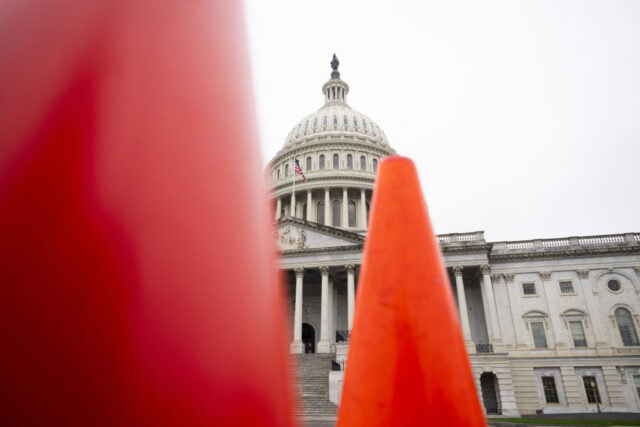For more politics coverage and analysis, sign up for Here’s the Deal, our weekly politics newsletter, here.
When members of Congress return from recess next week, there are four major things worth keeping on your radar.
1. Rescissions
Congress expects to get President Donald Trump’s list of suggested cuts from current spending sometime this week, we are told by a source familiar. These are known as rescissions and could be up to $9 billion in spending, Punchbowl reported.
These differ from traditional cuts considered by Congress, whereby lawmakers usually vote on the next year’s spending.
Here, Trump is expected to propose cuts to current spending, including possibly eliminating funding for the Corporation for Public Broadcasting, which would affect some 1,500 local public media stations, as well as NPR and PBS (which includes PBS News).
Watch the segment in the player above.
Once Trump proposes rescissions, Congress has 45 legislative days to accept them or amend them. Otherwise, his request lapses and the funding stays intact.
2. Reconciliation
When last we left Republican lawmakers, they had passed the first critical step toward expanding and extending Trump’s tax cuts: a budget resolution.
This blueprint opens up the “reconciliation process” that allows Republicans to pass tax cuts, and some other agenda items, through the Senate with a simple majority vote.
They do not have significant time if they want to make their deadline. The budget resolution sets a May 9 deadline for committees to write the tax cut portions of the next, larger bill.
Doing this will not be easy. The budget resolution left most of the hard questions unanswered.
Among them:
- How much spending must be cut and where will those cuts come from?
- How much should the debt ceiling increase?
- Which tax cuts should be added, for whom and for how long?
3. The future of Medicaid
As part of the reconciliation process, Republicans will have to grapple with how and whether they want to significantly cut or reform Medicaid.
The reconciliation instructions to the House make it mathematically impossible for that chamber to meet its goals without cutting back on funding for Medicaid.
But, to make things more complex, the instructions to the Senate are far more loose.
In other words, the chambers will have to negotiate this part of the Trump “big beautiful bill.” Expect a potentially sharp fight among Republicans over priorities.
For more: PBS News’ Hannah Grabenstein took a closer look at who relies on Medicaid.
4. Nomination holds
There’s one thing that may be overlooked right now.
One by one, a handful of Democratic senators have begun using a Senate procedure — placing holds — to slow down or block specific Trump administration nominees, either individually or in large groups. At the minimum, a hold means that a nominee cannot be fast-tracked and approval may be significantly slowed down. It can de facto prevent a vote on a nominee altogether, depending on circumstances.
- Sen. Brian Schatz, D-Hawaii, has placed holds on some 300 nominees, including all nominees for the Department of State. Schatz has written that he objects to Trump’s gutting of USAID, as well as cuts and actions affecting other agencies.
- Sen. Ruben Gallego, D-Ariz., has done the same for all nominees to the Department of Veterans Affairs, objecting to proposed cuts for the agency.
- Sen. Ron Wyden, D-Ore., put a hold on a Trump nominee to head the Cybersecurity and Infrastructure Security Agency, the government’s cybersecurity hub. Wyden wants the agency to release a report on problems in the U.S. telecommunication agency.
- Sen. Adam Schiff, D-Calif., put a hold on Trump’s nominee to be the U.S. attorney in Washington D.C., a pivotal prosecutor in the Department of Justice system. Schiff argues that the nominee is a Trump loyalist who helped organize the Jan. 6, 2021, “Stop the Steal” rally and should be blocked.
We know that Trump has pushed against any delays in seeing his nominees confirmed, at times threatening to upend the nomination system itself by launching recess appointments.
Insightful, trustworthy journalism, for everyone.
Your tax-deductible donation ensures our vital reporting continues to thrive. Support PBS News Hour now.
















































